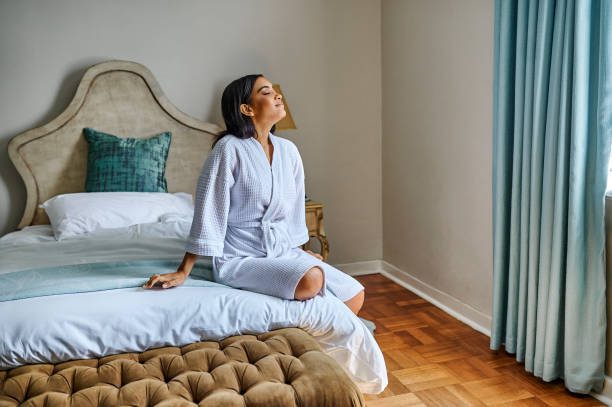Imagine a guest arriving at your vacation rental, opening the door, and acting like the space is theirs—folding the sofa throw just right, opening the pantry and putting away snacks like they live there, and maybe even rearranging cushions. That sense of “mine” isn’t just imagination. It’s the cognitive bias known as the Endowment Effect, and as a vacation rental host it’s one of the most interesting psychological phenomena you can leverage. In this blog we’ll explore what the endowment effect is, how it manifests in short-term rentals, how it influences guest behaviour, and how you can design your property and guest experience for positive outcomes.
What is the Endowment Effect?
The endowment effect describes how people tend to value things they own more than identical things they don’t own. behavioraleconomics.com+3The Decision Lab+3Investopedia+3 Early experiments showed that people given a mug asked significantly more to give it up than people would pay to acquire it—despite no material difference. Investopedia+1 The effect arises from ownership, attachment, loss aversion and a sense of psychological ownership. Corporate Finance Institute+1
For hosts in the vacation rental space, the endowment effect offers a fascinating lens: when a guest feels some ownership or attachment to your property during their stay, they may treat it more like their home—less like a hotel room—and this can be a positive thing (if guided well) or a risk (if boundaries aren’t clear).

Why the Endowment Effect Matters for Vacation Rentals

Here’s how the endowment effect shows up in vacation rentals, especially relevant if you’re managing properties like you are:
-
Guests treat the space like their own home. Because of the endowment effect, once guests settle in they may act like they own the place: using appliances freely, moving furniture slightly, unpacking fully, lingering in the living room late at night. That’s good—because a relaxed guest often means a happy guest—but you also need to structure it so their sense of ownership doesn’t lead to damage or misuse.
-
Better guest experience and loyalty. When guests feel the rental is their home during their stay, they may stay longer, appreciate the details more, leave positive reviews, and even return. In essence the endowment effect is helping you create emotional attachment to the space.
-
Maintenance & wear-and-tear risk. On the flip side, if a guest thinks “I live here,” they might treat a piece of furniture more roughly (e.g., pushing couches around) or assume flexibility with rules (late checkout, extra guests). The endowment effect amplifies that “this is mine” mindset.
-
Pricing & value perception. The endowment effect influences how guests perceive value: if they feel “ownership” of the space, their willingness to pay (or to accept amenities) may change. Conversely, hosts may over-value their own place because they feel ownership. Being aware helps keep pricing and offers realistic.
-
Marketing & conversion. You can consciously design your listing and messaging to evoke feelings of ownership—“make this your home away from home,” personalised welcome, little touches that make the guest think “this is mine for a few days.” That triggers the endowment effect in a positive way.

How to Trigger the Endowment Effect (Positively) in Your Rental

Here are actionable ideas to harness the endowment effect so your guests feel at home and treat the place with respect:
A) Design for Comfort and Personalisation
-
Provide a well-stocked kitchen, let them use it like they live there, not just cook.
-
Create “living room” zones (sofa with throw pillows, board games on coffee table) so the guest thinks of it like their lounge.
-
Small personalised touches: a welcome board with their name, a “help yourself” snack cupboard, a local-flavour coffee setup. These help the guest feel “ownership” from the moment they arrive.
B) Clear But Friendly Guidelines
-
Because the endowment effect makes guests feel “this is my home”, they may expect more flexibility. Use friendly language in your house rules: “While we want you to feel right at home, please…”
-
Provide a guest manual that emphasises “treat this space like your home” but also clarifies boundaries (e.g., pool use, hot tub hours, pet policy).
-
Consider how your deposit, rule enforcement, and inspection routines align with giving guests trust—they’ll feel more ownership and respect the space more.
C) Pre-arrival Engagement
-
Send a welcome message: “We hope you’ll feel at home from the moment you step in.”
-
Provide a pre-arrival checklist that asks them what kind of snacks they like, if they’d like music setup, etc. That involvement increases psychological ownership before they even arrive.
-
Ask for arrival feedback: “Let us know how the kitchen setup works for you” — guests who feel empowered are more invested.
D) Invoke Memories and Personalisation
-
Provide local guides, personalised suggestions (“You might enjoy the local bakery down the street”), maybe even a wine or baked good from a local source. When they bring an external item into the space, it reinforces the endowment effect: they are using the home.
-
Leave a small notebook or comment book: guests writing about their stay feel more anchored.
E) Exit Strategy & Feedback
-
At checkout, invite them to “leave it as you found it” rather than “restore everything”. That wording reinforces the home-like feeling.
-
Ask for honest feedback: “What would make you feel even more at home next time?” This continuing relationship strengthens attachment and makes them more likely to return.

Case Example: Applying to Your Rental Properties
Given that you have several vacation rental properties (in Houston, Cypress, Seabrook, etc.), the endowment effect can be leveraged uniquely for each.
-
For your Houston music-themed rental: Encourage guests to “make music your own” by leaving guitars out, music books, a small casual jam session welcome—so guests feel a sense of creative ownership.
-
For your Cypress pool-backyard oasis: Offer poolside amenities that invite lounging (e.g., pool-side lounge chairs, dining table for eight, sectional sofa). Guests see these as their outdoor living room for the stay, triggering the endowment effect.
-
For your Seabrook property: Provide local beach gear, allow guests to “prepare their own breakfast on the deck,” treat the outdoor dining area as an extension of home.
In each case, the feeling of ownership helps guests treat the space with respect and linger longer. But always balance: you want them to feel at home, but you still need your property returned in good order.
Why Being Aware of the Endowment Effect is Crucial (and What to Watch Out For)

-
Over-valuing your property: As host you may fall victim to the endowment effect—valuing your space more than the market or guests might. That can lead to overpricing, unrealistic upgrade investments, or expecting guest behaviour that doesn’t align.
-
Guest boundary confusion: If a guest feels too much ownership without boundaries, they might request late checkouts, extra guests, or stretch rules—complicating your operations.
-
Damage or longer stays without profit margin: Guests who feel at home may stay longer, which is good—but if your pricing structure doesn’t account for extended stays or increased wear, you could lose out.
-
Lack of exit plan: When guests have full “home mode” for a stay and then leave, you might not be able to pivot quickly for cleaning, next guest turnover, or use of the space.
By consciously designing for the endowment effect—you’ll harness the upsides (guest comfort, loyalty, positive reviews) and mitigate the risks.
Quick Checklist for Hosts: Triggering the Endowment Effect While Maintaining Control
-
Use welcome messaging that says “make yourself at home”.
-
Provide amenities as if for a homeowner (fully-stocked kitchen, lounge area, comfortable furnishings).
-
Ask for small guest preferences before arrival (snacks, coffee type, music).
-
Provide a guest manual emphasising home-like use but also clear boundaries.
-
Collect guest feedback about how “at home” they felt—and adjust for future stays.
-
Monitor pricing and stay-length patterns: longer stays can be good, but adjust rates for extended occupancy.
-
Clean and reset quickly knowing the guest may have acted like an owner—inspect for wear-and-tear accordingly.
Final Thoughts
The endowment effect isn’t just a theoretical psychology term—it’s a powerful tool in the vacation rental host’s toolkit. When you design your rental experience so that guests feel a sense of home and ownership, you create deeper attachment, better reviews, and higher chances of repeat stays. At the same time, you maintain the professional boundaries and systems that make hosting manageable.
In your case, with your multiple themed properties from Houston to Cypress and Seabrook, applying this concept creates distinct advantages: a music-themed home that guests “own” for a few nights, a backyard oasis they take ownership of, a beach property they treat like their own beach house—all while you control the guest journey and optimise for profit.
For further reading on the endowment effect, check:
-
“What Is the Endowment Effect?” on Investopedia. (https://www.investopedia.com/terms/e/endowment-effect.asp) Investopedia
-
“The Endowment Effect” on The Decision Lab. (https://thedecisionlab.com/biases/endowment-effect) The Decision Lab
-
“The Endowment Effect: Loss Aversion or a Buy-Sell Discrepancy?” via research from Gal Smitizsky et al. rady.ucsd.edu
